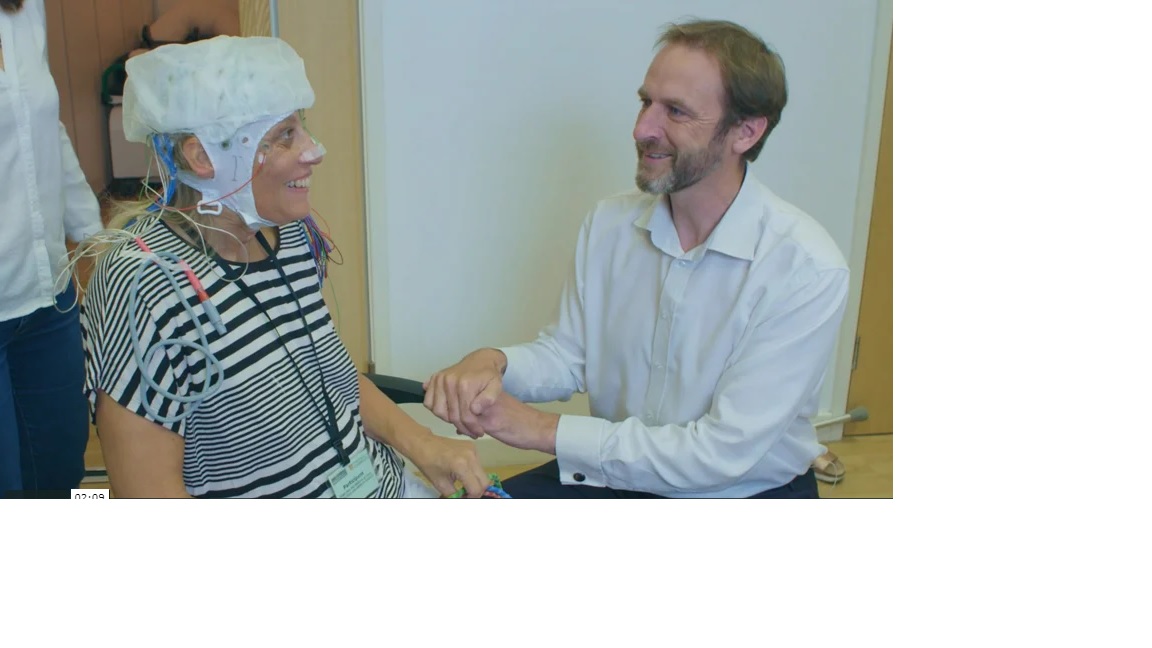Facilities
Cambridge provides a world class environment for dementia research, with specialist clinical research facilities for frontotemporal dementia and related disorders.
Brain Imaging
The Wolfson Brain Imaging Centre (WBIC) and the MRC Cognition and Brain Sciences Unit (CBSU) together provide the most advanced human brain imaging facilities available for research into dementia, neurodegeneration and their treatment.
This includes dedicated research facilities for high field MRI (Siemens 3T Trio and Skyra scanners), ultrahigh field MRI (Siemens 7T Terra), PET and PET-MRI, electroencephalography and magnetoencephalography (MEG).
Our PET facility is supported by the leading radiochemistry and ‘GMP’ production facility for imaging neuropathology and neurochemistry.
Informatics
From data crunching on high volume high-resolution MRI from large cohorts to computational modelling and brain simulations, and linkage to medical records, our investigations into brain function and new treatments draws on high performance computing facilities and expertise in advanced data analysis.
Neuropsychology and Cognition
One of the special strengths of Cambridge Neuroscience is international leadership in cognition, neuropsychology and behavioural neuroscience.
The Cambridge Centre for FTD and Related Disorders works closely with the MRC Cognition and Brain Sciences Unit (CBSU) and the University departments of Neurology, Psychiatry, Psychology, and Engineering.
These collaborations are bringing new insights into how an individual’s brain illness leads to changes in thinking, language, memory, and behaviour. This new understanding of disease mechanisms in humans not only validates pre-clinical models of disease and new ways for early diagnosis, but also guides the assessment of new targeted drug treatments.
Genetics
In addition to NHS genetics testing, many patients and family members also contribute a sample of saliva or blood to research genetics. Genetics research is an international collaborative effort. This effort is not only leading to the identification of new genes associated with frontotemporal dementia (FTD) and progressive supranuclear palsy (PSP), but also enables our team to study the changes in the brain in the years (or decades) before symptoms begin.
Brain Bank
A major challenge to FTD/PSP doctors and researchers is why the same underlying cause of disease (say a gene mutation) can cause very different symptoms in two people, even in the same family. Conversely, two very different underlying illnesses can cause symptoms that are identical. Understanding the connection between the underlying disease and an individual’s symptoms needs a map of “clinicopathological correlations”.
These rely on the generous gift of brain donation, and the experience of pathologists at the Cambridge Brain Bank. It is a very personal decision, whether to donate ones brain after death to research, but it is a topic we typically discuss with patients and families many years ahead. The Cambridge Brain Bank plays an important part in proving the value of new tests for diagnosis like PET scanning, blood tests, and psychology tests.
Treatment Studies
The Herchel Smith Building (HSB) for Brain and Mind Sciences and the Addenbrooke’s Centre for Clinical Investigation (ACCI) provide superb patient-friendly facilities for drug treatment studies, whether Clinical Trials or Experimental Medicines studies. These studies are often linked to brain imaging, lumbar puncture, and/or neuropsychology so as to get extra evidence that a drug is working, and show how it is working.

